More mornings than not, I would wake up to the smell of cafe de olla and tortillas heating up on the comal enveloping the room. The smell and taste of whatever my mother or my grandma was cooking on the non-stick pan they bought from an infomercial would vary from day to day. What never varied, however, was the radio playing in the background of my family’s domestic routine.
If I woke up early, I’d catch the news–not that I cared for it or understood it. Most days I woke up later, and the voice of Don Cheto and La Marlene would intermix with that of my dad telling my mom about a jerk at work or my grandpa teasing my grandma about not taking her meds. It didn’t matter whether I was waking up at home or had spent the night at my grandparents, the radio was always there.
Don Cheto is a fictional radio and television personality who’s had a morning radio show for years now. His show “Don Cheto Al Aire” is rated the number one radio show in Los Angeles, airing on Estrella Media’s Que Buena Los Angeles.
He is an icon in Mexican-American culture, best known for his outlandish tall tales and humorous approach to entertainment news. I remember the preposterous tale of how he fearlessly fought a crocodile at a local park because he wanted to get some crocodile boots. The punchline—“the damn crocodile wasn’t even wearing any”—became a part of my family’s repertoire of jokes. He also had a segment where he would narrate scary stories, most of them set in his home state, Michoacan. He’d speak in a very serious voice, a contrast to his usual chipper tone, and make sure to include long pauses as he talked about duendes and ghosts. A six-year-old me would pretend I was coloring on the rug, not listening intently, getting increasingly frightened with each word he spoke.
His show was the one show from home that I could still listen to once I moved from Wilmington to Mexico, and it helped with my homesickness.
The radio reminds me of mornings when life was calmer. It reminds me of my grandpa. Listening to the radio was not only crucial to my family but also to my cultural identity. Spanish was everywhere around me, including on the radio.
It was also an essential part of curating my music taste. Whether it be the “señora dolida” music like Ana Gabriel and Lupita D’Alessio that my grandma would listen to as she cleaned, or The Smiths and The Cure playing from my aunt’s radio when she was in her early 20s, three-year-old me had no idea what half the words meant nor that I’d still be listening to these years down the line.
Although I didn’t know it at the time, my love for radio was as much of a hand-me-down as some of my aunt’s band t-shirts I wore as pajamas.
My grandfather always had a portable radio, or rather many portable radios. They would inevitably break or stop working after years of use and being brought back and forth as he worked on other people’s gardens. When he sat in his van during his break or on his drives from place to place, I’m sure the radio was on. I never got to ask him what he listened to but I’m sure it was something like la Qué Buena.
When my mother was a little girl, she had a small stuffed mouse that was also a radio, and she slept with it every night. The voice of Linda Ronstadt and Aaron Neville would woo her to sleep. She recalls flipping back and forth between stations, unsure of if she was in the mood for Spanish rock or KROQ. Years later, she would still have that back and forth in her own house and her own kitchen.
When I was about five or six, someone bought me a Lizzie McGuire portable radio from the mall. It was the first time I had access to my own music, the first time I got to control what I listened to. I remember listening to the radio on the bus, always ending up on the most random channels like the jazz or classical music one.
I haven’t owned an actual radio in years. Lizzie McGuire got replaced by an mp3 player and later an iPod nano, and many years down the line, my phone. With such easy access to things like Spotify or YouTube, I only find myself turning to my radio app some mornings to catch the news—which I now not only understand and care for but happen to essentially work in. The radio shows I used to tune into changed into podcasts that I listen to as I get ready.
But my grandma still listens to the radio every morning. I catch snippets of radio hosts that defined my childhood as I pop my head in to say I’m leaving for school. I’ll see second-hand radios at the swap meet that look just like the ones my grandpa had and smile. Perhaps we’ll soon reach the age where radio become entirely obsolete, but a part of me will be forever grateful for the impact and nostalgia the radio and personalities like Don Cheto hold for me.

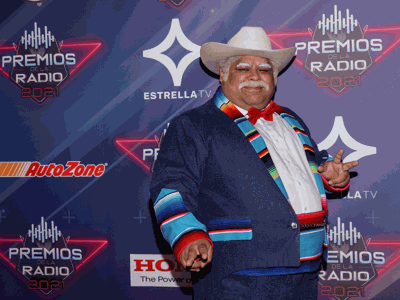
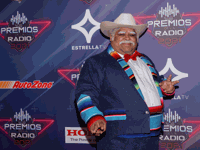

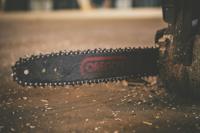

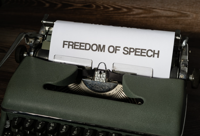

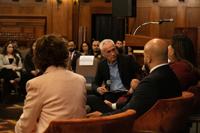

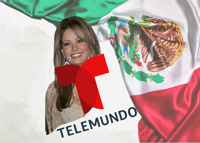
(0) comments
Welcome to the discussion.
Log In
Keep it Clean. Please avoid obscene, vulgar, lewd, racist or sexually-oriented language.
PLEASE TURN OFF YOUR CAPS LOCK.
Don't Threaten. Threats of harming another person will not be tolerated.
Be Truthful. Don't knowingly lie about anyone or anything.
Be Nice. No racism, sexism or any sort of -ism that is degrading to another person.
Be Proactive. Use the 'Report' link on each comment to let us know of abusive posts.
Share with Us. We'd love to hear eyewitness accounts, the history behind an article.